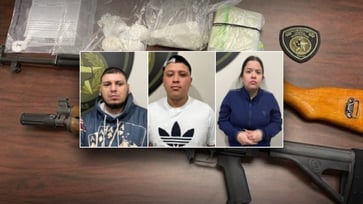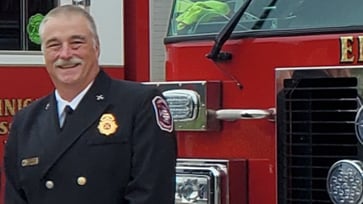What is the effect of true crime podcasts on public interest in criminal cases?
A Pew Research Center study reveals that nearly one-fourth of the top-ranked podcasts focus on true crime.

The allure of true crime podcasts is irresistible: no matter what you're doing, once you start listening, you're hooked by the enthralling tales of criminal investigations and human psychology.
True crime stories showcase the strength of survivors and the gratification of seeing justice prevail. They can spark global fascination with criminal investigations. However, they also reveal the horrific aspects of humanity.
Despite the recent surge in popularity of the genre, true crime podcasts have had a loyal fanbase for centuries, according to Kelli Boling, Ph.D., an assistant professor at the University of Nebraska-Lincoln College of Journalism and Mass Communications who specializes in studying the genre and its audience.
- The impact of podcasts on criminal cases in the past, as exemplified by the murder of Hae Min Lee and the killing of Cooper Harris.
True crime podcasts are available in abundance on Podchaser, a website that consolidates podcast information from multiple sources, with over 23,000 options in this category alone.
True crime podcasts are the most popular among top-ranked podcasts, with 34% of U.S. adults who have listened to a podcast in the past year regularly tuning in to true crime shows.

The popularity of the true crime genre has increased over time, as people are increasingly drawn to learning about criminology, psychology, and the American justice system.
Emily Compagno, host of "The FOX True Crime Podcast," has 4.7 stars on Apple Podcasts and 444K followers on Instagram.
The depth of her reporting, sensitivity, and ability to simplify complex topics have earned Compagno praise. Boling believes that the education aspect of true crime has great potential to bring about positive change.
She has dealt with various cases, such as the Boston Marathon bomber, the Idaho murders of four college students, the story of Holly Dunn and her survival from the Railroad Killer, among others.
Cases of podcasts' popularity have led to fans waiting outside courthouses and even changing trial venues due to local coverage.
The first season of the podcast "Serial" centered on the 1999 murder of Hae Min Lee and the subsequent conviction and imprisonment of her boyfriend Adnan Masud Syed, which led to the case being heard at the Supreme Court.
The podcast advocating for Adnan's release garnered fans at the courthouses in Baltimore and the U.S. Supreme Court. As a result, he was released and had a job waiting for him at a local college. This led to a complete change in the public perception of Adnan.
As a program associate, Syed was hired at Georgetown University's Prisons and Justice Initiative.
The first major true crime publication to focus on the alleged perpetrator rather than the victim was "Serial," which aired on the radio and podcast platform.
"Through her phone interviews with him, the host centered the voice of the accused in every episode of the podcast," said Boling.
Syed's charges were dropped and then reinstated due to a procedural violation, despite audiences believing him to be innocent after listening to "Serial."
The "Breakdown" podcast by the Atlanta Journal Constitution featured the story of Justin Ross Harris, who was tried for the murder of his son, Cooper, after leaving him in a hot car for several hours.
Despite "Breakdown" revealing that Ross was having an affair with a 16-year-old girl, Harris' wife testified on his behalf, stating that the incident was an accident.
When the trial comes out, we all hate him now, but that doesn't make him a murderer. The judge in that trial, Judge Mary Staley, granted a change of venue due to pretrial coverage and the Atlanta Journal Constitution's live podcast coverage.

The ruling overturned Harris' conviction, stating that his affair, used as a motive for killing his son, had an unfair prejudicial impact on the jury.
Podcasts have a powerful impact on cases, as Boling stated. The audio portion of the media likely plays a significant role in changing opinions of the defense and prosecution, as well as the public's perception of the case.
True crime is often perceived as a narrative that is inherently true, but it is framed as such.
For centuries, we've been gathered around campfires, sharing stories and becoming emotionally invested in them, unlike when we watch documentaries.
"We feel a close bond with the hosts. We feel confident enough to represent the defendant in court, take a day off work and protest outside the courthouse."
True crime creators have a unique relationship with their fans, which often leads to some fans conducting their own investigations without any guidelines.
True crime enthusiasts can engage with both fellow fans and the creators of the genre on online forums, but there have been instances where amateur sleuths have disclosed personal information about individuals involved in ongoing cases and have even betrayed the families of the deceased.
The immersive experience of following a case is intensified by the medium itself. Listening to a podcast is an intimate form of media consumption, as it provides a direct connection between the host and the listener, with headphones allowing for a more personalized experience.
When a detailed picture of a perpetrator or victim is painted, it becomes easier to understand why listeners become emotionally invested in the outcomes of cases they have been following closely for a long time.
The first major true crime publication to concentrate on the accused rather than the victim was "Serial," as explained by Boling. The victim's family declined interviews.
Ethically, the question arises: should she still cover the story? She did, and it altered the genre. Unfortunately, it may have also paved the way for less ethical productions, according to Boling.
While journalists and lawyers who produce true crime podcasts adhere to ethical codes, there is no universally accepted ethical standard for the genre.

Boling discussed the "celebrification" of infamous killers, such as Jeffery Dahmer, in Netflix's dramatization of their crimes. Producers of various true crime projects that she has spoken with in her research suggest focusing on the "why" when selecting a case to cover.
What is the purpose of this story? Why is it necessary to tell this story? I believe that is where the ethical discussion begins. Do we require another documentary on Dahmer? We don't. That story has been overexposed a million times, according to Boling.
Boling raised concerns about the impact of turning criminals into celebrities and how it affects the families of victims. She emphasized that production companies have the freedom to create what they want, but highlighted the positive side of true crime as an educational tool.
"What will people gain from this? What will we prevent? Whom will we inform? What kind of legislation will we advance?"
Boling's upcoming research will examine the ethics of true crime podcasting and propose a set of guidelines.
In a world where Evan Peters won a Golden Globe for his portrayal of Jeffery Dahmer and where there is a thriving market for the possessions of serial killers, she returned to the idea of carefully considering the motivations for creating any given piece of true crime media.
"What are some ways to focus on the positive aspects of true crime, such as education, healing, and providing closure for loved ones? Despite the negative connotations, there can be good that comes from it."
us
You might also like
- In the Bryan Kohberger case, a judge in Idaho hears a defense motion regarding the murders.
- A fire broke out in Los Angeles County, prompting officials to issue evacuation orders.
- As fears of ICE raids intensify, a bustling Chicago district, often referred to as the "Mexico of the Midwest," has become a ghost town.
- Injured in a shooting at Antioch High School in Tennessee, three people were left in a lockdown.
- A German national who worked at the Pentagon during 9/11 was allegedly killed by a Vermont Border Patrol agent, according to the family.
